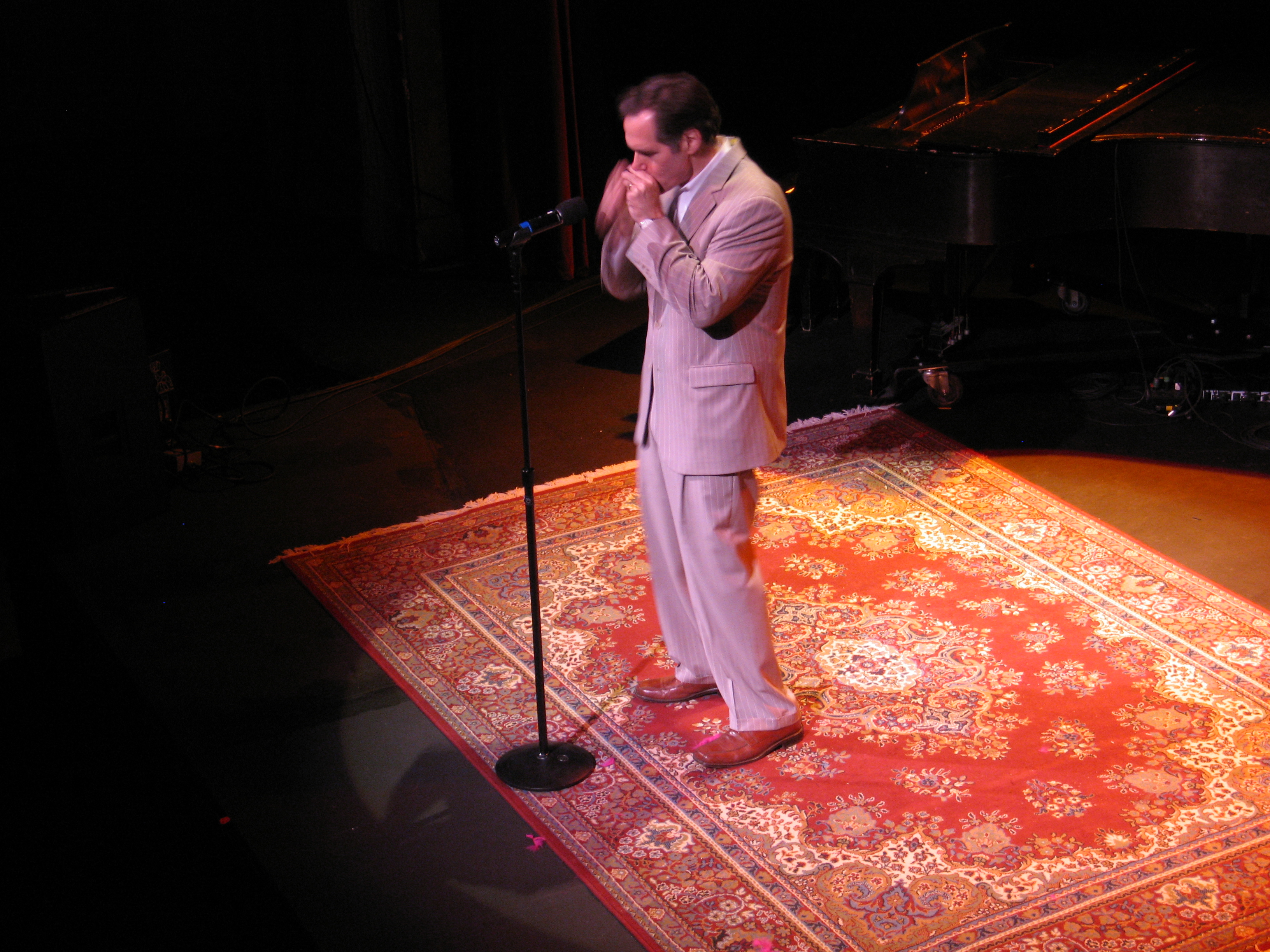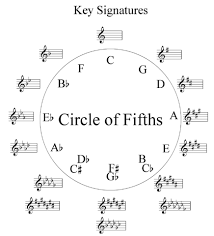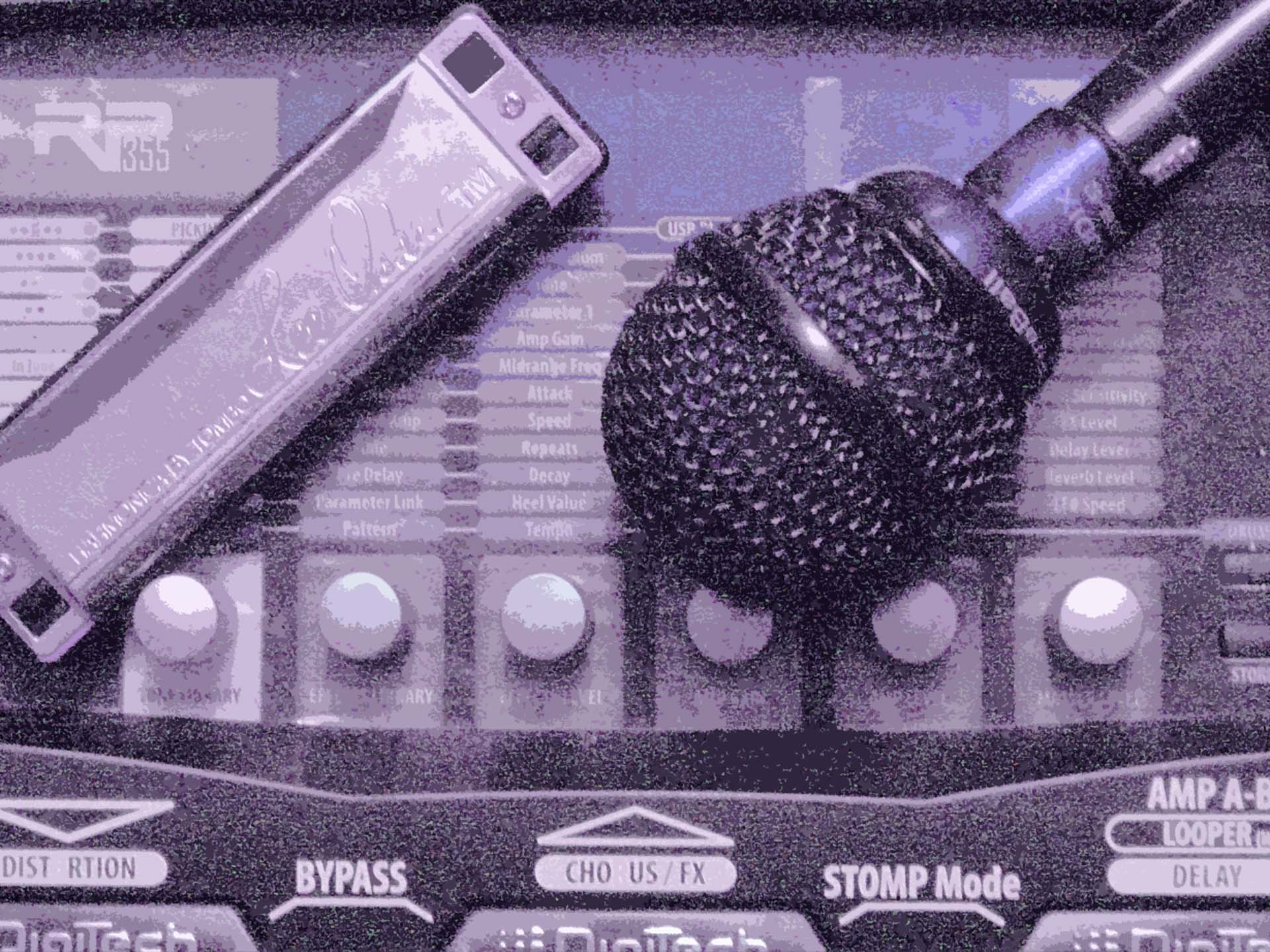
Harp players may not all use music theory, but they ought to respect it
A post to Harp-L last week, and some of the responses to that post, reminded me that many harmonica players don’t know much about music theory, and some of those players have attitudes towards theory that are not helping them to grow as musicians. So herewith a few comments on why we should all stop sneering at theory.

It’s my observation that people who took the time to learn enough theory to understand and play whatever music they want to play are glad that they did. People who didn’t take the time are generally either embarrassed about it, or perversely proud of it. The solution to the embarrassment is to put in a little time to learn some theory; chords and the scales that go with them are a good place to start. The solution to the perverse pride is to get over it as quickly as possible. It never hurts to know something more about music today than you did the day before, and it never helps to know less.
Depending on what kind of music you play or compose, and the skills of the musicians you play with, a broader or narrower knowledge of theory is necessary. Jazz and classical musicians know theory well; they have to, because the music demands it. (You can’t improvise effectively over chords changing twice per bar at 200 beats per minute if you don’t know your scales.) Most folk styles don’t require a lot of theory, but even then it helps to know some. In his college days, my brother was in a blues jam session with a bass player who didn’t know the names of the notes he was playing. (My brother specifically asked this guy to change a certain note from an F to an F#, at which point the guy said “Man, I’m not into theory.”) Trying to teach a part to that guy was like trying to teach a dog to sing. If you’re the player in that situation, you’re struggling to do something that everyone else in the room thinks is easy; if you’re in a recording session, you’re painfully aware that everyone else in the room is waiting for you to get your act together, and you’re costing the producer tens or hundreds of dollars for every minute you take to make that happen. wouldn’t you rather know a little theory?
Theory is an infrastructure, not a prison
Brian Wilson was mentioned in a previous Harp-L post as an example of a guy who broke all the rules, which is true, but make no mistake: Wilson knew what the rules were, and he knew why and how he had to break them to get what he wanted. He was a schooled musician. Who do you think wrote out the parts for the dozens of players on the “Pet Sounds” sessions? Wilson’s mom? Or do you think that Wilson sang all the parts to all the players, one by one, and they magically heard and remembered every part accurately on the first try?
This example points to the real value of theory: a common understanding of theory, like a common understanding of anything else, helps people communicate about what they’re doing more quickly and accurately. Theory exists so we can get to the point–which is the music–more quickly with less confusion. Theory isn’t a prison, it’s an infrastructure. The more variety in your music, the more you need to rely on that infrastructure.
When it comes to learning a skill, a little bit of work every day equals a lot of skill over a longer period of time. For people who have ambitions to play lots of different kinds of music, it’s worth putting in that little bit every day. You can start by listening to some of your favorite records and breaking them down. What’s the bass doing? What’s the guitar doing? What’s the name of that chord the guitarist is playing, and how do the notes in that chord move to the next?
Theory deserves respect and gratitude
Whether you choose to put in that effort or not, it’s silly to imply that theory doesn’t matter, i.e. that serious musicians can safely ignore it. Of course the music comes first. Theory is always derived from what has been done. That doesn’t make it any less valuable. Lots of people worked hard to develop the theory behind the music so ignorant sots like you and me would have an easier time learning to do what someone else already did. Their labors deserve respect and gratitude even if the music you play doesn’t require every last bit of the knowledge they created and shared for the benefit of posterity–i.e. you and me.
As musicians we are all part of a tradition that goes back thousands of years. Theory describes the structures that support that tradition. It’s a good thing, and the only thing it costs is your time and attention, which admittedly are scarce and precious. So take what you need, and please don’t disparage the knowledge, even if you don’t need a lot of it to operate effectively in the styles you choose to play.
Related Posts
1 Comment
Leave a Reply
You must be logged in to post a comment.
WHAT’S NEW
Categories
- Audio/Video
- Blog
- Blue Future
- Digitech RP Tricks and Tips
- Discography, CDs, Projects, Info, Notes
- Featured Video
- For the Beginner
- Gallery
- Hunter's Effects
- Hunter's Music
- Huntersounds for Fender Mustang
- Meet the Pros
- More Video
- MPH: Maw/Preston/Hunter
- My Three Big Contributions
- Player's Resources
- Pro Tips & Techniques
- Recommended Artists & Recordings
- Recommended Gear
- Recorded Performances
- Reviews, Interviews, Testimonials
- The Lucky One
- Uncategorized
- Upcoming Performances
- Zoom G3 Tips and Tricks

Just the truth. Even the rock music I am playing requires a lot of knowledge about theory. It gives me the freedom to create and invent things by myself………rather than to primarily copy out the ideas of other players. It is freedom and I am very happy about the advice of my former teacher Steve Baker to learn exactly that.